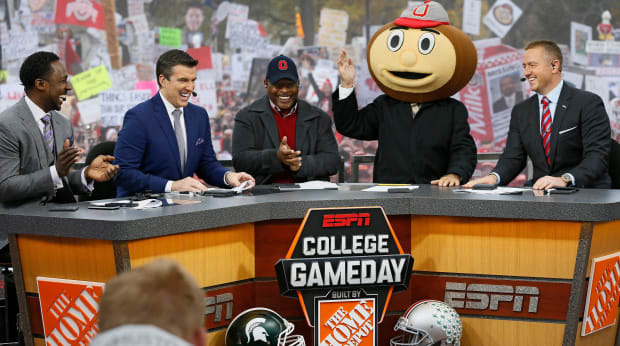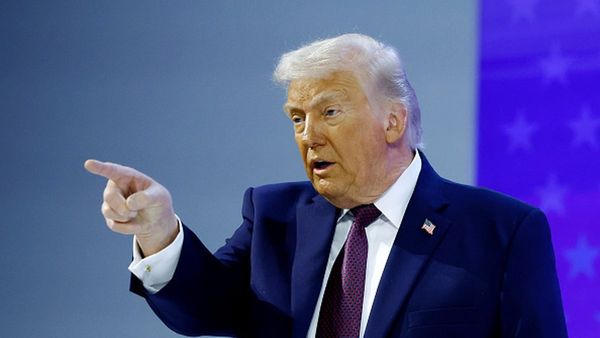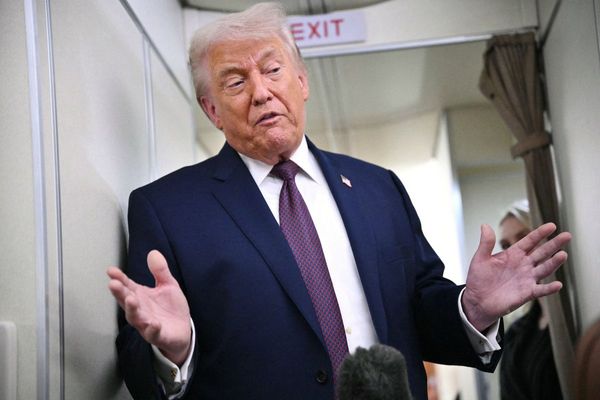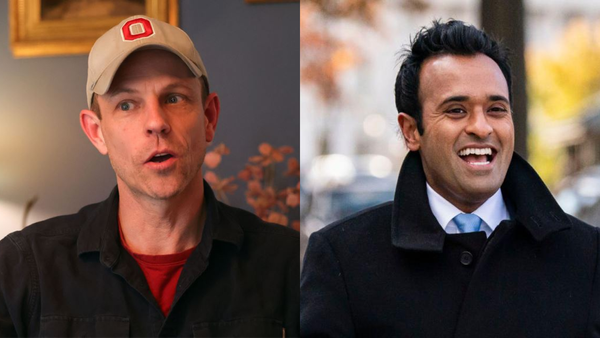It’s hard to believe today, in light of the reported impending breakup of ESPN and the Big Ten Conference, but once upon a time that relationship was suspected of being strong enough to decide who won the Heisman Trophy.
Twenty-five years ago, during what might have been the most contentious and controversial Heisman race of them all, a wide swath of the Tennessee fan base was convinced the fix was in: ESPN allegedly was pushing Michigan defensive back Charles Woodson to win the award over Volunteers quarterback Peyton Manning.
It’s unlikely that there was a concerted ESPN effort to help Woodson become the first (and only) primarily defensive player to win the Heisman. But his candidacy and Disney-owned ESPN’s programming had a cozy marriage of convenience in 1997. Six regular-season Michigan games were televised by an ESPN platform and the other five were aired by ABC, which Disney bought in 1996 and started to integrate with ESPN. Meanwhile, more than half of Tennessee’s games were broadcast on something other than an ESPN or ABC outlet.
What’s more, eight of Michigan’s 1997 games kicked off at noon or 12:30 ET — coming right out of the network’s “GameDay” show. It is TV Promotion 101 to try to keep an audience as long as possible, so it made sense to talk a lot about the undefeated Wolverines and Woodson on “GameDay” as a hook for viewers. (“GameDay” was broadcast live from two Michigan games that season, the opener at home against Colorado and Oct. 25 at Michigan State. Tennessee’s Sept. 20 game at Florida also was a “GameDay” location.)
What often followed all those noon games was a 14-hour cascade of Michigan highlights. The Wolverines won the games, won the news cycle, and ultimately Woodson won the Heisman.
The ’97 season underscores how deep the ties were between ESPN and the Big Ten then—and how little that matters now. It’s a dusty display in the Conspiracy Theory Museum. In recent years, the cynics have declared that ESPN is in bed with the SEC, not the Big Ten, and now those folks have been fresh fodder.
The Big Ten put out a statement Tuesday stressing that nothing is finalized in its media-rights negotiations. But multiple reports say that the oldest and richest athletic conference will not re-sign with the broadcast giant that pioneered immersive college sports coverage.
Nobody could have seen that coming before 2021, when Texas, Oklahoma, the SEC and ESPN first made the earth move beneath everyone’s feet. When the Big Ten and Fox Sports responded by snatching USC and UCLA less than six weeks ago, the new lines of demarcation were drawn.
In the new world order, it’s Fox and the Big Ten vs. ESPN and the Southeastern Conference for college athletic supremacy and piles of cash, with plenty of collateral damage elsewhere. In times past, the networks had to coexist in media-rights agreements with conferences. Now the biggest of those joint ventures reportedly is disappearing.
This is where we now stand, in an era where TV dollars drive every decision. College athletic conferences are little more than TV channels, and the biggest of them have chosen sides in unprecedented fashion.
Hopefully, the main networks don’t go the route of the in-house subsidiaries—the Big Ten Network and SEC Network—and choose on-air talent based on where they went to school. It’s understandable on that level, but shouldn’t extend further.

Adam Cairns/USA TODAY NETWORK
Big Ten alums Kirk Herbstreit (Ohio State) and Desmond Howard (Michigan) are “GameDay” mainstays, and breaking up that band to further elevate SEC alums would undermine credibility (though former Alabama quarterback Greg McElroy is more than capable). Likewise, USC and Notre Dame products Reggie Bush, Matt Leinart and Brady Quinn should remain with Fox Sports’ “Big Noon Kickoff” show without concern about being replaced by Big Ten guys.
But in this climate, who knows how those things will play out. Network objectivity would seem to be more disposable than ever.
The Big Ten’s likely move toward a multi-tiered agreement with Fox, CBS and NBC comes with some risk. ESPN might be losing cable subscriptions by the bushel, but it remains the default first viewing option for many sports fans—walk into a bar of any kind, and it’s almost certainly going to be on more TVs than any other channel. Furthermore, ESPN built its early brand in the college space and remains the place that televises the most college content.
Giving up that 40-year affiliation could come with a viewership price, and a downgrade in terms of exposure via ESPN.com. (One wonders if Fox Sports will try to upgrade the college content on its website, which it dismantled several years ago in the infamous “pivot to video” and has slowly started piecing back together.)
The further ripple effects from the Big Ten breaking up with ESPN could be beneficial to the Pac-12, which is still trying to survive after being gutted by the loss of USC and UCLA. ESPN now has a fresh need for programming, and the Pac-12’s rights are up for bid, and there still are attractive West Coast markets and Saturday night game windows (#Pac12AfterDark) to maximize.
Discussions also remain ongoing about a potential Pac-12 broadcast partnership with the ACC that could leverage the ESPN-owned ACC Network. It could lead to nothing—details have been scarce and data has been kept under wraps—but it also could offer a revenue boost to two Power 5 leagues being left behind in the revenue race. Perhaps ESPN would have some fresh incentive to pursue that, given the Big Ten-sized hole in its portfolio.
Regardless, a lucrative and mutually beneficial era of Big Ten games proliferating on ESPN appears to be over. That will take some getting used to. The broadcast battle lines are drawn for the foreseeable future, and there is vanishing common ground for cooperation between the power brokers.







